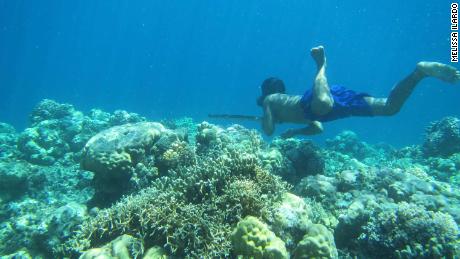Bajau Laut Tribe Genetic Adaptation

Adaptation history and fate in a maritime fishing society of south eastern sabah.
Bajau laut tribe genetic adaptation. The larger spleen size may simply be a secondary effect of the increased cell volume. The bajau laut a sea faring hunter gatherer tribe with a 1 000 plus year history in the southeast asian islands are known for their remarkable free diving ability. Well these people from southeast asia live a truly fascinating lifestyle with each tribe member spending around 60 percent of each day under the waves. In the waters they call home around the philippines malaysia and indonesia they dive to incredible depths for pearls and for food living off.
The deepest dive recorded by the free diving bajau laut people of southeast asia was to an impressive 79 metres and the longest time spent underwater by them was just over three minutes. The bajau laut have been sea nomads for centuries. This result strongly suggests that the bajau harbor genetic variation that has been targeted by selection related to phenotypes of importance for diving. Sea nomads are first known humans genetically adapted to diving for hundreds of years the bajau have lived at sea and natural selection may have made them genetically stronger divers.
A new study points to a genetic mutation as the reason behind the incredible bajau freediving skills. She remembers diving with pai. The sama bajau refers to several austronesian ethnic groups of maritime southeast asia with their origins from the southern philippines the name collectively refers to related people who usually call themselves the sama or samah formally a a sama sama people. In the summer of 2015 melissa ilardo got to see how good they are firsthand.
And as a result of these aquatic habits it appears that the bajau laut s bodies have changed dramatically over the years leading in fact to an incredible genetic adaptation. The deepest dive recorded by the free diving bajau laut people of southeast asia was to an impressive 79 metres 259 feet and the longest time spent underwater by them was just over three minutes. These sea nomads are the first known humans to have a genetic adaptation to diving.


















